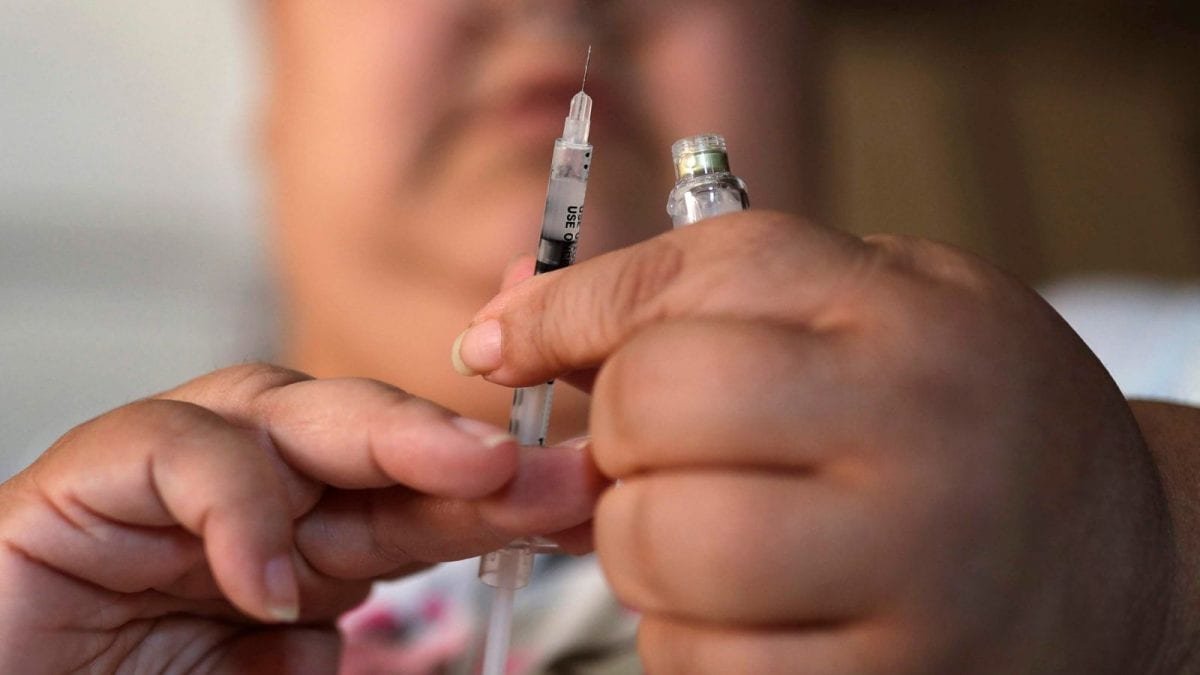Last Updated:June 26, 2025, 16:15 IST
One of the most persistent misconceptions is that diabetes can spread through blood, a belief doctors are now strongly debunking
Crucially, neither form of diabetes is caused by a virus, bacteria, or any other infectious agent. (Representational Photo: AP)
As diabetes continues to rise at an alarming pace across the globe, affecting hundreds of millions, so do the myths surrounding the chronic condition. One of the most persistent misconceptions is that diabetes can spread through blood, a belief doctors are now strongly debunking.
Dr Sonia Rawat, Director of the Department of Preventive Health and Wellness at Sir Ganga Ram Hospital, told News18 Hindi that diabetes is not an infectious disease. “It does not spread by touching, eating with someone, sharing utensils or clothes; and certainly not through blood,” she emphasised.
This clarification comes at a crucial time, as misinformation continues to circulate, particularly among families where one member has diabetes and others fear contracting it through physical contact or transfusions. Dr Rawat categorically stated that if a person with diabetes donates blood, the recipient will not develop diabetes as a result.
There are two primary forms of diabetes:
- Type 1, an autoimmune condition where the body’s immune system mistakenly destroys insulin-producing cells in the pancreas, and
- Type 2, which is far more common and primarily linked to lifestyle factors like poor diet, lack of physical activity, obesity, stress, and genetic predisposition.
Crucially, neither form of diabetes is caused by a virus, bacteria, or any other infectious agent. “It’s a metabolic disorder,” said Dr Rawat, “rooted in how the body produces or uses insulin. It is not something you can ‘catch’ from someone else.”
What Actually Causes Diabetes?
Experts point to a combination of risk factors – some preventable, others not. A family history of diabetes does increase risk, but so does leading a sedentary lifestyle, consuming high amounts of processed food, suffering from chronic stress, and getting inadequate sleep.
Type 2 diabetes is increasingly being seen in younger populations due to unhealthy eating and lack of physical exercise. Type 1 diabetes, by contrast, often develops early in life and is primarily driven by genetic and autoimmune factors, not lifestyle.
How To Prevent Or Manage Diabetes
While it cannot be “caught”, diabetes certainly can be prevented or managed. Doctors recommend a balanced diet, regular physical activity, weight control, and routine health checkups as the most effective measures. Early diagnosis and consistent management also go a long way in preventing long-term complications associated with the disease, such as kidney failure, vision problems, and cardiovascular issues.
- First Published:
#Diabetes #Spread #Blood #Heres #Doctors #Lifestyle #News



